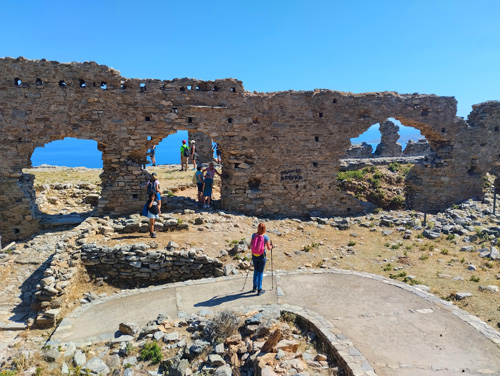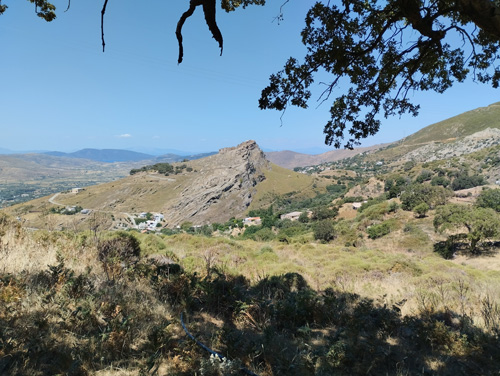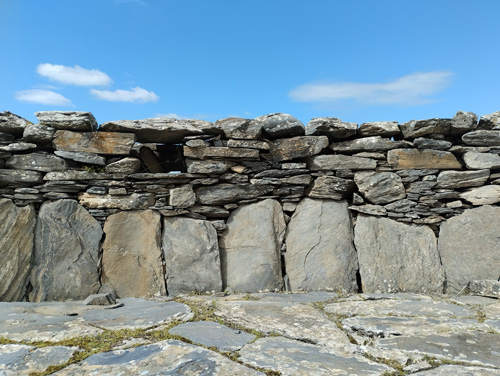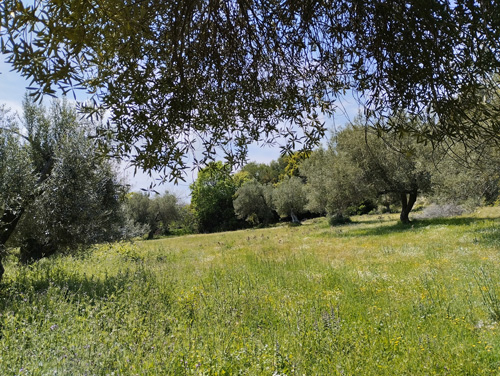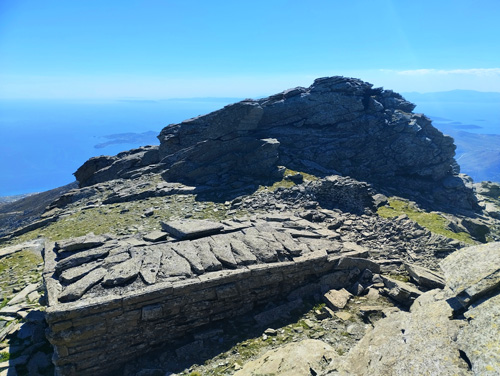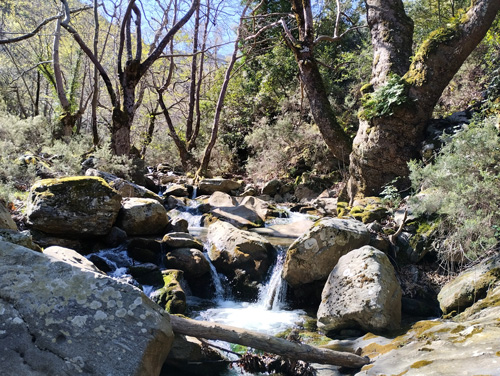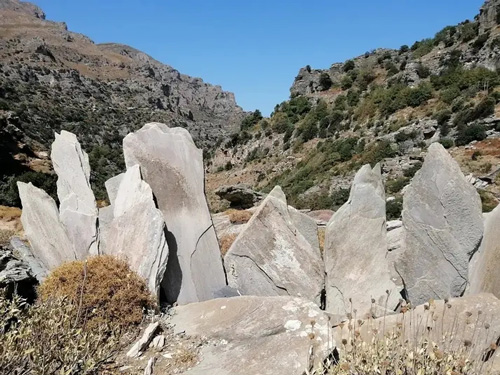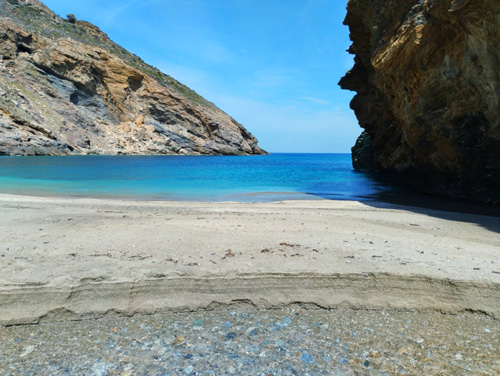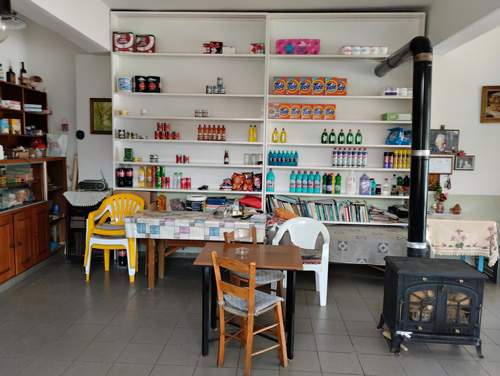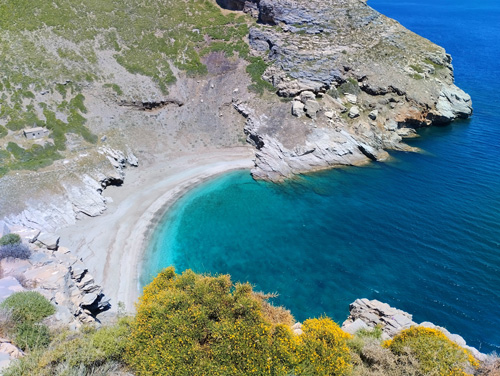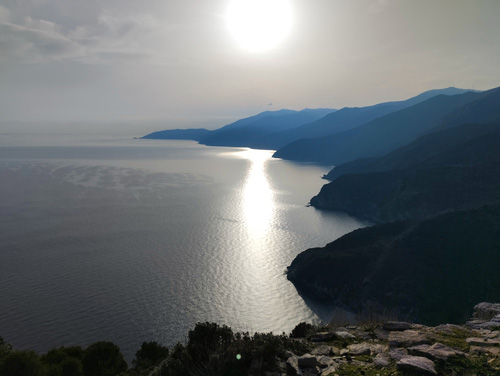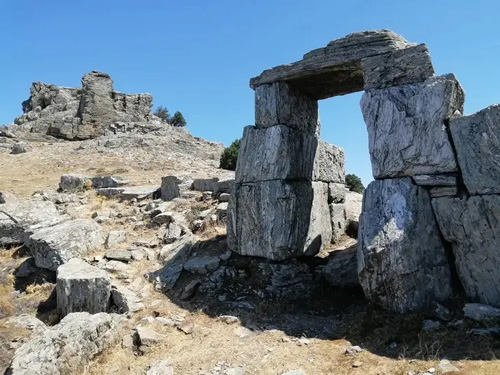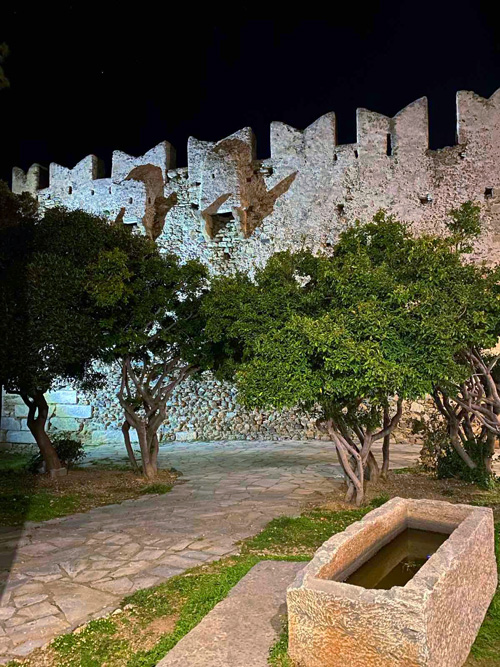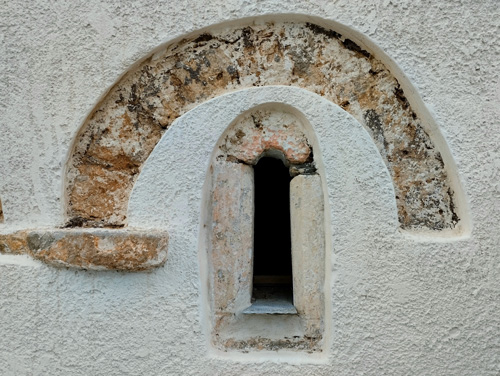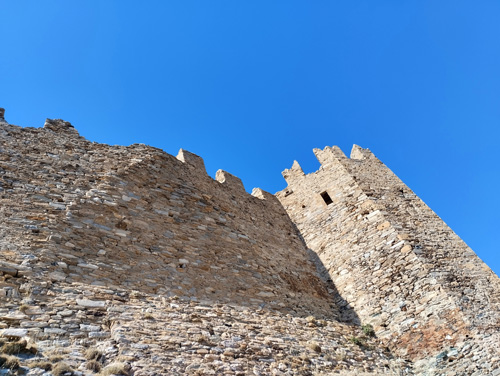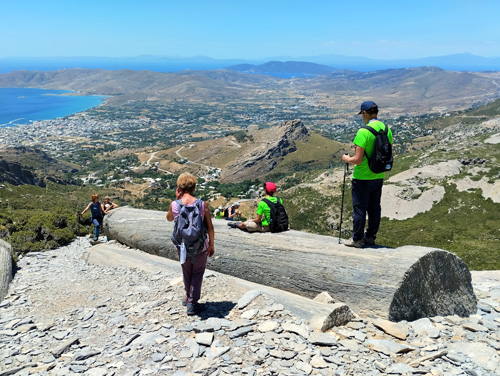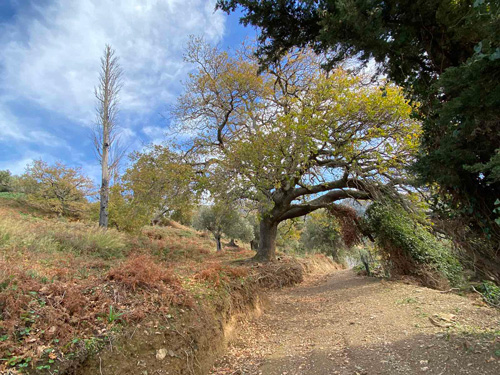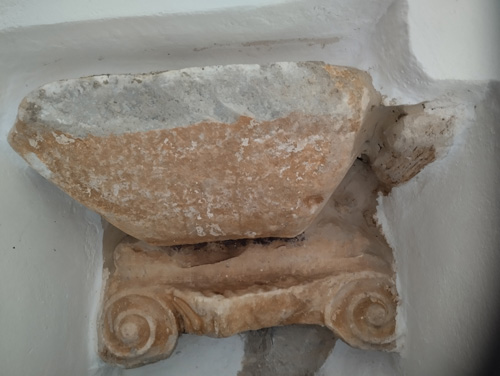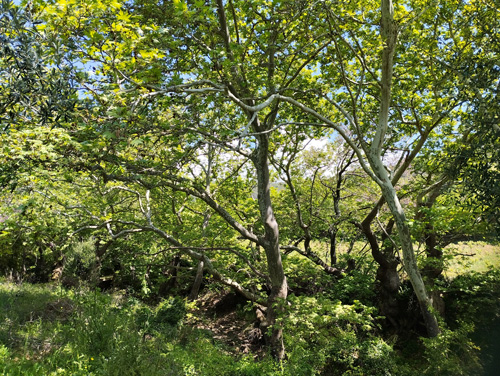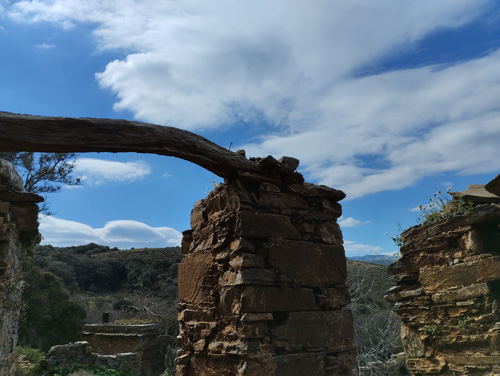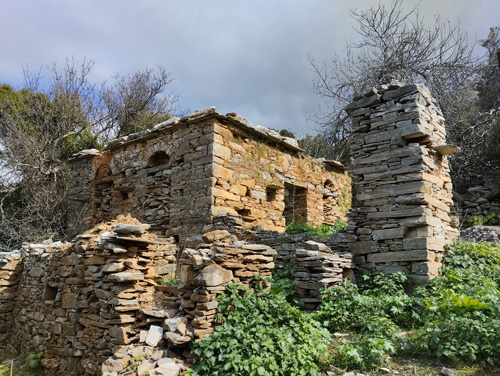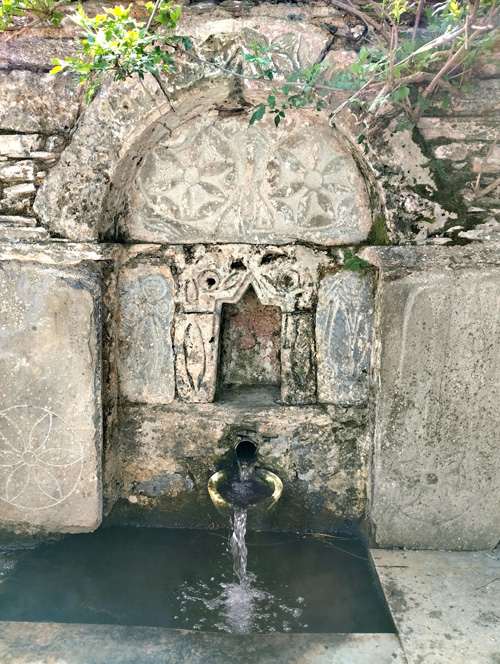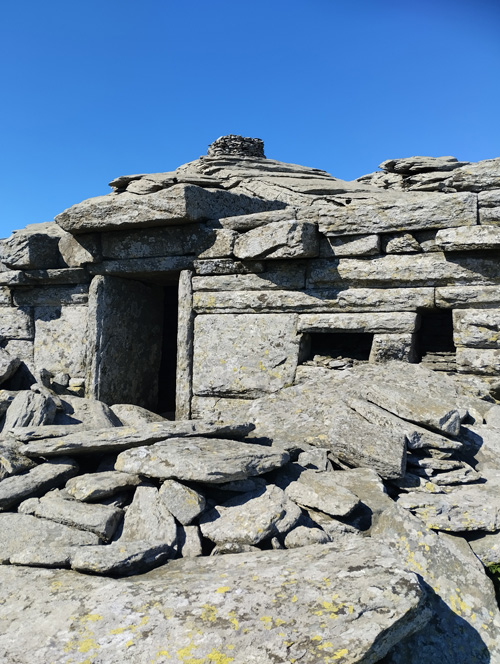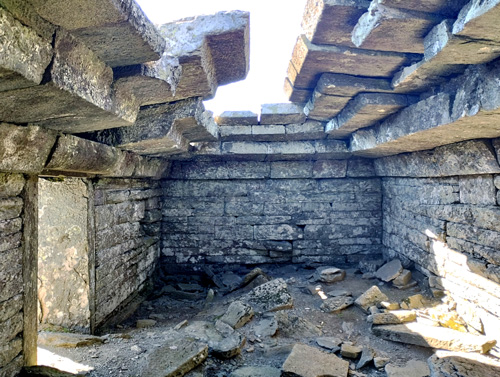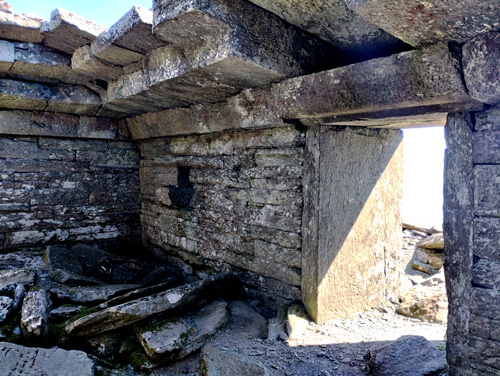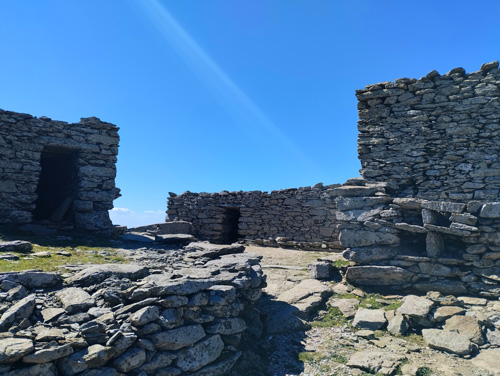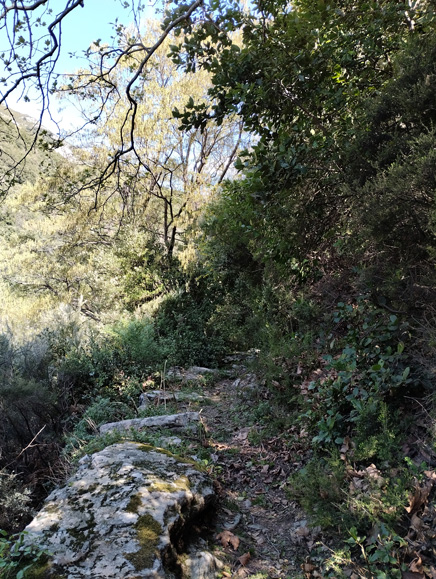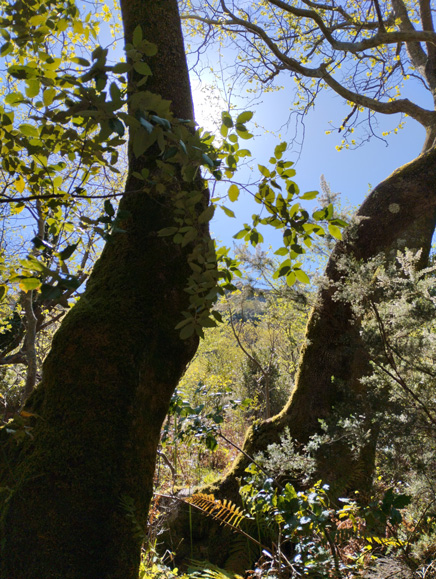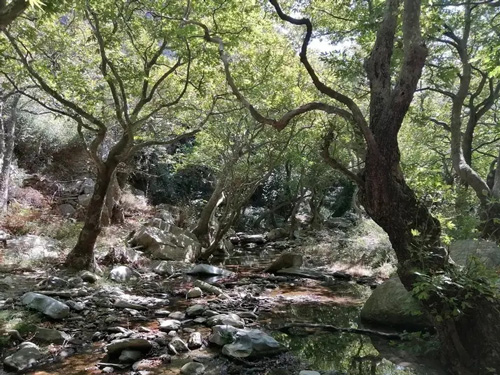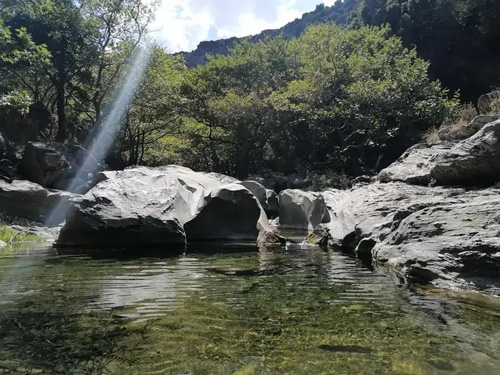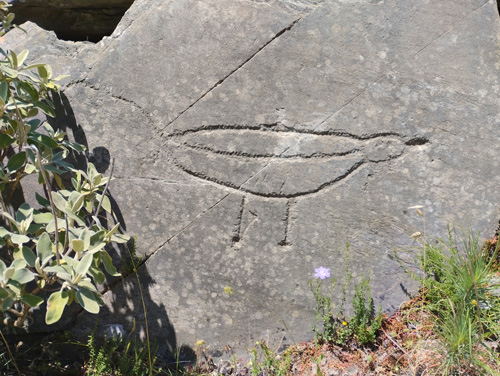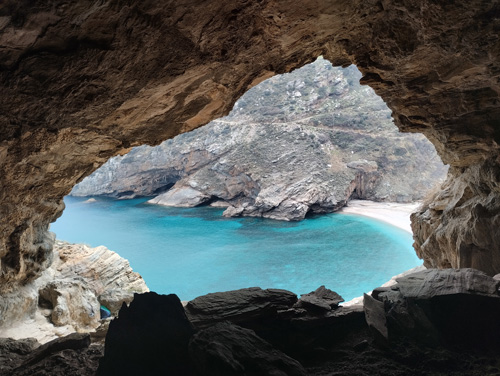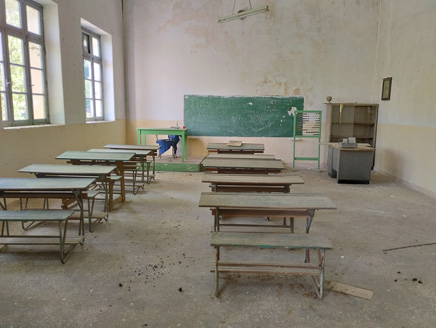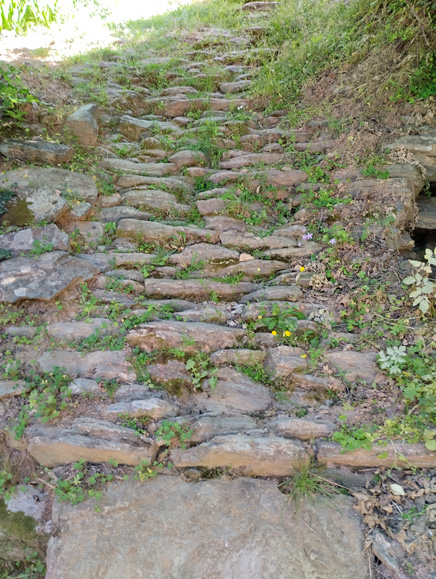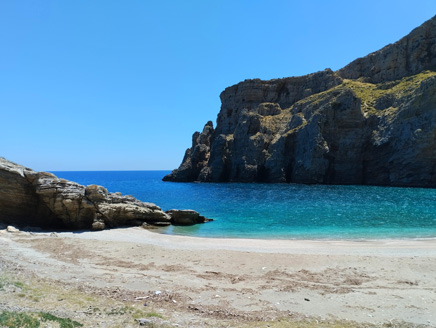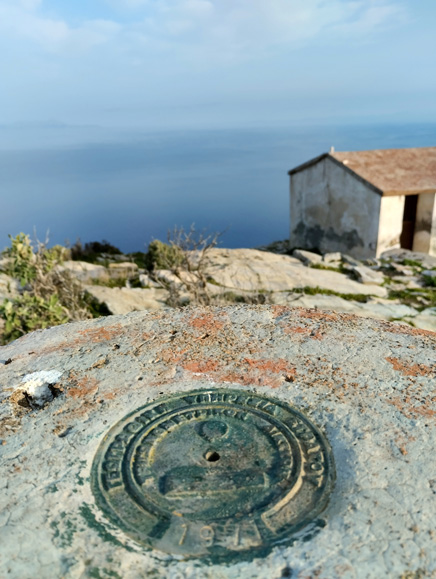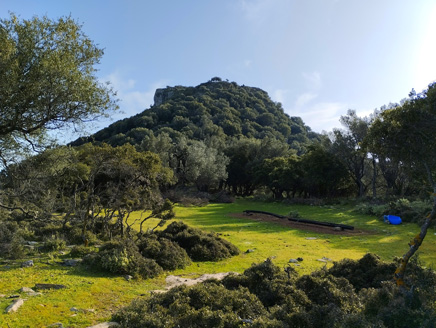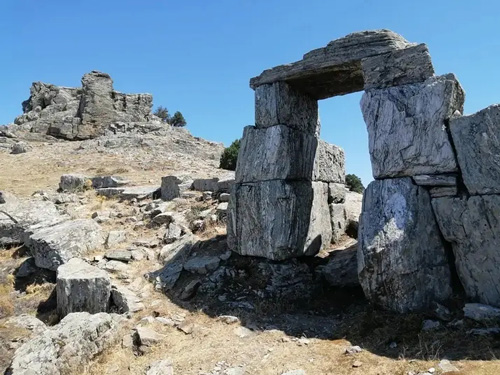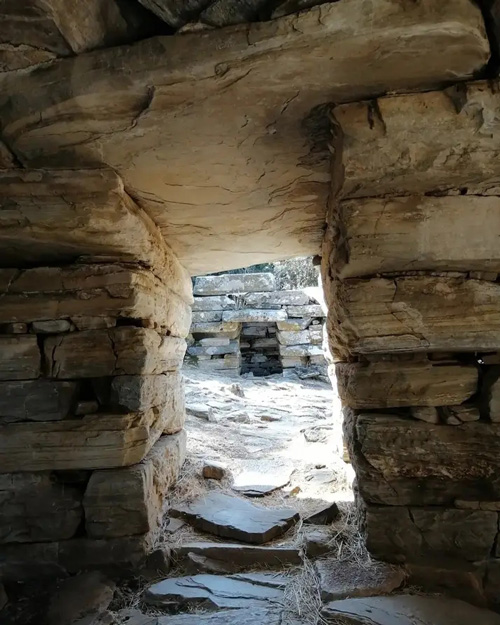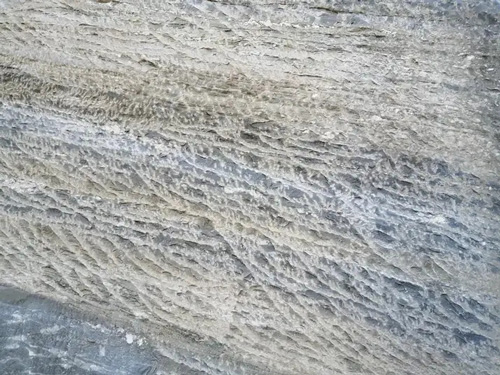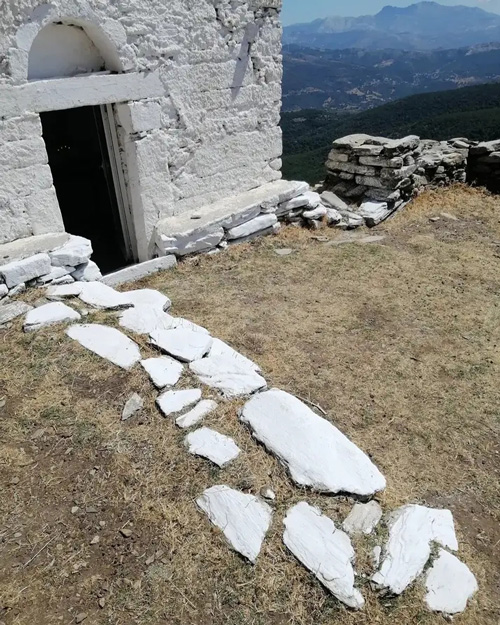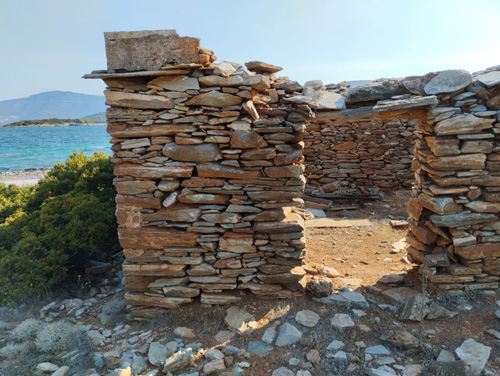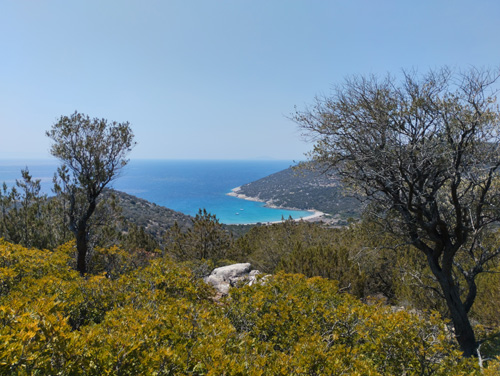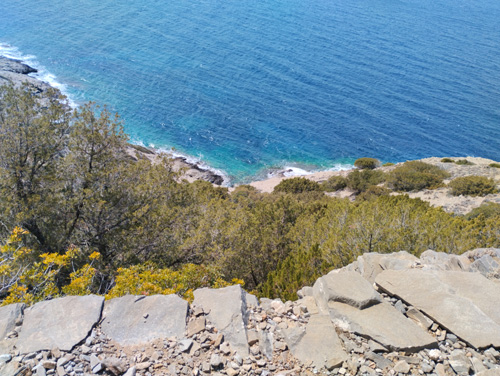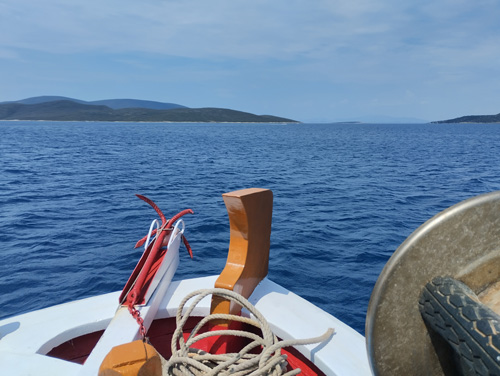The Antiquities of Karystos
Karystos existed as a city-state prior to classical antiquity. Studying its history one can gain a vast knowledge of Mediterranean and Balkan history as shaped by the antagonisms of each period’s powers.
Major landmarks like the Bourtzi fortress, the Castello Rosso (Kokkinokastro), the Roman Aquedact, the quarry Kylindroi, the Palia Chora (old city) and the remains of the Palace of the Eastern Roman Prefect, form overlapping layers of the ancient Greek, Roman, Byzantines, Venetian, Lombard, Catalan, and Ottoman presence.
The National Archaeological Museum of Karystos, right across the Bourtzi, offers important knowledge especially on Greek and Roman period antiquity.
The village Myloi
The village Myloi is located on the East slope of the Castello Rosso hill (Kokkinokastro). Myloi (mills) have always been of great importance due to the freshwater fountains and streams, its many water mills, the thick vegetation and the fertile land. The natural scenery attracted mystical religious activities since antiquity, as we can tell from the embedded marble parts at the church of Agios Ioannis Prodromos.
Myloi in the past was neighboring directly to the old city of Karystos, which was then located in and around the Kokkinokastro, and was the entrance to the city for the main route connecting the villages of Cavo D’Oro (Kafereas) all around from Kalianou to Platanistos. This route was used from antiquity until 60 years ago.
Parts of the ancient transportation routes are still being used by shepherds and hikers that head to Kylindroi, Drakospito, Kastanologgos, and Dimosari gorge.
The antiquity fragments, the venetian lions at the triple spring, and the ottoman writings at the highest spring are hints of the area’s rich history.
Check out our hiking activities!
The Platanos taverna – Nikos Karystinakis, Myloi: +30 22240 24300
The abandoned settlement of Galana
Galana is an abandoned settlement in Karystia area, between the settlements of Chania and Paradisi. It is located on the hill of the southeast side of a small amphitheater-shaped valley. Visiting Galana offers a unique experience of imagining the way of life of the family that lived there perfectly autonomous from the rest of the world as most of the villagers of the area till the mid seventies. It is said that the only goods people needed from the market were sugar, coffee and tobacco.
Galana has been abandoned and derelict since the middle of the 20th century. The last house was built in 1946. The remaining houses, preserved as ruins, were built towards the end of the 19th century.
According to the testimonies of the oldest Marmari inhabitants, Galana had 100 inhabitants in the first half of the 20th century. At the moment we do not know the date of creation of the settlement, however the area, due to its relief, has always been and, to a certain extent, still remains, the center of agricultural and livestock activities.
Paradeisi village
A scenic village close to Marmari and on the way to the northern beaches of Karystia. Hidden inside thick vegetation and an ideal place to start a hike to the abandoned settlement of Galana, and then have your meal at the tavernas.
Check out our hiking activities!
Taverna O Platanos, Paradeisi: +30 22240 31753
The Drakospito of Mt Oche
The Drakospito is a megalithic ancient construction of unknown origin right under the top of the 1.400 meters high mountain Oche. There is evidence that among other uses at some point served for the worship of Zeus and Hera. It is not defined though if this was its original purpose.
The huge stones are mantled with precisement and the several tonnes of each roof stone make the construction a technical miracle. There are signs that at a certain historical period there had been attempts of dismantling it, as happened with many antiquity monuments during the attempt to erase idolatry.
About 50 meters south there is a complex of constructions, probably of most recent years, that have, and still are, being used by Orthodox Christians for religious purposes and refuge. These are also impressive regarding their technical and aesthetic characteristics.
The view all around is breathtaking, and one can observe the east coast of Attica, along with numerous Cycladic Islands such as Kea, Andros, Gyaros etc.
The Demosari gorge
Demosari gorge is a very well known route that used to connect the northern villages of Oche with Karystos. Milk products, chestnuts, cherries, wool and leather, sheep and goat herds were transferred through this trail, all year round. Signs of its past glory are the stone paved remnants that used to allow the mules and the donkeys to carry the goods back and forth, at often extreme slopes.
This northern part of Oche Mt. traps the sea moisture brought by the north winds, making the area fertile and rich in vegetation.
Waterfalls and natural curved stone-tubs create a majestic environment for the senses.
The Agios Demetrios Gorge
A magnificent trail connecting the village of Agios Demetrios to the seashore.
An impressive landscape formed by gigantic rocks and cliffs, characteristic of the area, surrounds the clearwater stream flowing all year round towards the sea. Each rock could be a castle by itself or a gigantic mythical figure.
The trail follows safely the left bank of the stream, a few meters to a few dozens meters away from it.
Breathtaking views, sounds of waterfalls and the wind, and intense mediterranean vegetation smells fulfill all the senses.
Schenodavlia beach of Agios Demetrios
One of the most impressive and wild locations of the Karystia region. Caves in and out of the water, stalactites, thick sand and clear waters. The flow of the freshwater stream completes the magic scenery. Night swimming offers the amazing experience of “fairy” sparks produced by the existing plankton and the body movement. When the north winds get wild one can find peace and swim at the river tubs up the stream.
Check out our hiking activity!
To Faraggi, Kantina, Agios Demetrios beach, +30 6939 018236
Manthos, Kantina, Agios Demetrios beach, +30 6987 076528
The Platanistos village and Potami Beach
Platanistos is a scenic village at the East slopes of Mt. Oche, hiding its treasures inside thick vegetation. Ancient trails, all of them important transferring roots of the past, waterfalls, stone bridges and watermills. The water stream leads all the way to the magnificent beach Potami.
The waterfall is a hotspot during summer since temperatures there drop by 10 degrees. A historic trail begins from the waterfalls leading to Epanochori, where there is a watermill, a stone bridge and the springs of the river Potami. Following the path downwards one can end all the way to the beach! More paths lead toward Kastanologgos and Komito.
Check out our hiking activities!
Taverna at Potami: +30 22240 22327
Antia village, the whistling language
Antia village consists of just a few houses in the absolute quietness of Cafereas, however, it is of great importance for human civilization! Antia is one of the five places of the world, all of them mountainous, where people (used to) communicate by a whistling language.
Maria owns the old cafe-taverna-shop of the village, and offers coffee, refreshments, meze, or, with prior notice, a meal. If you are lucky some elderly might perform the whistling language for you! Make a stop on the way to Archampoli and the Kafereas trails, a lunch pack from Maria is a delicious idea!
Maria’s cafe-taverna, Antia: +30 22240 25894
The Archamboli beach and archaeological site
Archamboli (Αρχάμπολη, Αρχαία Πόλη) is a magnificent beach at the end of a gorge at Cavo Doro area (Kafereas), 50 km from the city of Karystos. A cliff on the south side of the beach forms deep water caves that could have been formed by the mining activities during antiquity. More caves stand on the cliffs behind the beach and a steep slope covered by metal processing leftovers.
Signs of the ancient settlement appear at the sides of the gorge together with a fortified area a few hundred meters upwards.
The Castle of Fylagra and the beach of Giannitsi
Karystia, all around, is scarred by History and by the human activities and antagonisms, from prehistoric times to now. The intense landscapes of Karystia remind us of the insignificance of our efforts to subdue the wilderness.
On the left side of the beach of Giannitsi, on top of a 300m hill, stands the ancient castle of Fylagra. On its right side stand formations of the precious cipollino stone, admired and used by the Romans all around the Mediterranean. The wild beach is exposed to the North winds and the weather transforms the waters constantly.
Check out our hiking activity!
Vita Vita, Taverna, Giannitsi beach, +30 6931 087350
Drakospita, quarries, and Acropolis of Styra
The Drakospita (Dragon Houses), that are still in use by the shepherds for their animals, have excited the fantasy of the locals for centuries because of their megalithic structures and the irrelevance to any other known past construction.
Many fables surround the Drakospita referring of course to dragons and village girls being hunted by them for their love. The original use of Drakospita has probably been for worshiping gods. Some findings from their interior are presented at the National Archeological Museum of Karystos.
The Castle of Armenon (“Akontion” during antiquity) has been used continuously since antiquity, and was abandoned only during the 17th century. The view from this 628 meter hilltop offers an imaginary reconstruction of life through 3 millennia of raging wars and continuous conquests of the narrowest part of island Evia.
The area has been used for stone extracting since antiquity, and therefore the quarries are found all around the area, along with signs of ancient stone transferring routes.
The Megalo Nisi of Petalioi islands
The Megalo Nisi is the biggest of the Petalioi islands. In the past it was owned by the former royal family and partly by dependent field workers. At the end of the 19th century, King George requested a perimetrical road for his chariot entertainment rides. Small stone bridges, carved cliffs, beautiful Mediterranean vegetation and sea views, wild beaches, and the remains of peasant houses offer a unique experience to the visitor. Petalioi islands have hosted the former royal family, the Empeirikos family, the Picasso family, Maria Callas, Pier Paolo Pazolini, and many more artists and intellectuals.
Check out our hiking, sailing, snorkeling, diving and fishing activities on and around the islands!



